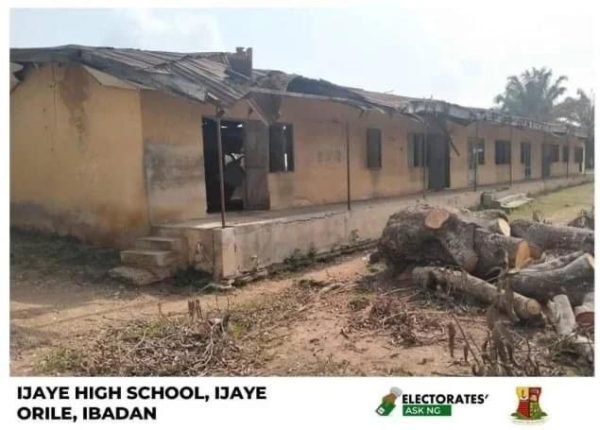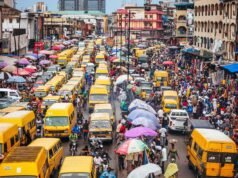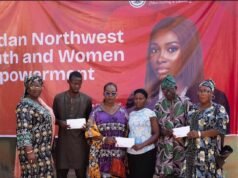Some years ago while I was still teaching at the Redeemer’s University, Ede, I decided to bring some final year students to the city of Ibadan to see some landmarks in the city as part of the students’ course in nation-building. We began our visit to the vast city of Ibadan, the biggest city in tropical Africa or perhaps the biggest city in Africa in terms of its spread. The city of Ibadan, because of its history and size has problems that are peculiar to it. The city is a combination of modernity and underdevelopment; it is both city and village in some layout, and it is both conservative and liberal at the same time and it is the favourite of many people.
One can have both city life and village life depending on which part of the city one lives in. Many of us consider the city home but we all know the limitations imposed on residents by the history of the city at least in contemporary political times. Ibadan was founded by immigrants coming from several Yoruba kingdoms but predominantly from Oyo. In the history of Ibadan, the military caste or people with military prowess have largely given the city its character.
Despite its cosmopolitan beginnings, the city today does not permit new arrivals the same assimilation into its citizenship as before. This is why it will be difficult for residents who can even trace the arrival of their parents in the city over a hundred years to be elected into any posts in the city. It seems the old Ibadan melting point tendencies ended centuries ago. Ibadan is not alone in this tendency; it seems most Nigerian cities are like that today. It will be interesting for sociologists to investigate why Nigerian cities do not manifest the renewal tendencies and assimilation process manifested in many cities in other parts of the world. I hope my readers will permit this meandering preamble!
Back to the issue under discussion. I took my students to Mapo Hall which was the seat of the local government in times past , some kind of “hotel de ville” if one can borrow from the history of Paris in France. There must have been some events at that time when we visited Ibadan precisely in 2015. The situation at Mapo Hall surrounding was noisy and rowdy and it seemed as if some local tough guys were showing who was in charge in the place. We saw some guys being hailed and heralded by followers and “Dundun” “Gangan” and “Bata” drummers and from what I could see there was some show off of power. My “ajebota” students were confused and not prepared for what we saw and I quickly took them out of the place after telling them a bit of the history of the place in colonial and modern Nigeria. Mapo Hall is now the rallying point for political gathering, mobilisation and demonstration in Ibadan.
After Mapo Hall, we visited Saint Anne’s School, the oldest girls’ secondary school in Nigeria. We were welcomed by the principal who gave a short history of the school to the students and I asked one of my students to respond and to tell the senior students of the secondary school why they should choose our university as their first choice of universities they wish to attend. Saint Anne’s showed what impact a virile old students association can do for the maintenance of their old school. Like Christs school Ado Ekiti, Saint Anne’s is a good example of a school remaining a pride to both old and new students. We then drove to Ibadan Grammar School, one of my Alma mater because I went to Christ School Ado Ekiti first before going to higher school in Ibadan Grammar School which was one of the access routes to universities in Nigeria in the 1960s.
I must say going to Ibadan Grammar School was with trepidation because I didn’t know the state of the school. The road to the school was virtually unpaved and a bridge over a small stream on the road seemed as if it might fall any time soon. It seemed to be a bridge too far to put it in military terms of the Second World War! We eventually got to the school and believe me, I could not recognise any place there. Not even the assembly hall/chapel, the classrooms where I studied for two years, nor the windowless adjunct hall which I shared with 10 other boys as dormitory. The entire place looked so totally unkempt and abandoned and grown with wild grass. This was a school founded by Bishop Akinyele and the Anglican community in Ibadan in 1913 and where Archdeacon Emmanuel Alayande, the Bishop’s son-in-law, was principal for many years.
Read Also: Oct 5 Rivers local government election sacrosanct, says Fubara
My students were eager to find out if Ibadan Grammar School was my old school. I couldn’t deny it and I had no explanation why the school of great men like the late Chief Bola Ige, Chief Bayo Akinnola, Professor Akin Mabogunje and many other people of blessed memory and those of us on this side of the heavenly divide went to remained in the dilapidated form we found it. The entire place lacked neither order nor rhythm nor reason. This school used to be a boarding school during my time. Sir Francis Ibiam, the governor of Eastern Nigeria sent his only son to the school and Sir Adesoji Aderemi, the governor of Western Nigeria had about three sons there. Chief Obafemi Awolowo’s son was there and the children of many distinguished men and women in the country were there. Our teachers came from all over the world, principally from England, India, and America and of course Nigeria. It was the school to go if one was not accepted in the strictly selective Government College Ibadan.
Recently, just a week ago, I went back to the school out of curiosity and I was shocked to my bone marrow that to put it mildly, God seems to have departed from Israel. The situation was worse than what it was in 2015. My driver asked me why I was crying. I had to tell him that on seeing the bust of Baba Alayande in front of one of the rundown buildings, I just couldn’t restrain myself. I became very emotional about the total deprivation, despair and destruction of a great institution.
Why is it that Nigerians don’t maintain anything and have a sense of history? Why must we begin building from the scratch? This is our national affliction also. We seem to reinvent the wheel every time whether it is the case of roads, railways, industries, universities, hospitals, you name them: our governments are always building and commissioning new things while abandoning the old ones to disrepair. There are no simple toilets in our schools and universities! Yet we expect that the students going through the portals of these institutions will be ladies and gentlemen! Not a fat chance! It will not happen. Perhaps we need to resolve as a country that this will not happen again at all levels of government.
During my historical provenance to Ibadan, I took my students to the Government College Ibadan, the pride of Ibadan and Nigeria in the past and I discovered that what I saw in Ibadan Grammar School was a microcosm of a general malady in Oyo State. There was no shred of what used to be a great school before now and yet this was the school that produced Wole Soyinka, Professor Dipo Akinkugbe, Dr Omololu Olunloyo, Chief Adegoke Adelabu and my own brother Abiodun Osuntokun. I did not bother to go to the Methodist Teachers College where Awolowo schooled. The situation would definitely have been the same. I remember Professor Jibril Aminu suggesting to the government of General Obasanjo that the federal government should take over the historic government colleges of Ibadan, Umuahia, Barewa and Kings College, Lagos for special development and preservation as educational monuments for future generation. I wonder what would have happened if his suggestion had been accepted. Will the old daemon of lack of maintenance culture not have reared its ugly head?
Unless we realise that we as a country have a national problem of lack of maintenance culture, all the monies of this world would not suffice for our national development.
My appeal to the Oyo State governor and all other governors of all the states of this federation is that they go round in cognito visiting all schools in their domains particularly the historic schools and find out what is going on there. Right in Mokola in Ibadan, the roofs of primary schools have been blown off with no sign of anybody responsible for repairs. I know some old students abroad are collecting money for repairs of some of these schools and incredibly as it may sound, state governments are asking for money so collected to be routed through them for repairs. There ought to be a special committee for schools repair and redesign and redevelopment with annual budgets. Students should be made to pay for school repairs and maintenance. I asked whether students do not routinely maintain their lawns again? All encroachment on schools grounds should be pulled down and roads to these schools should be upgraded and maintained. We should all know that our children are our future and if we don’t take care of them, they will all grow up to kill us and our children who are attending well maintained private primary and secondary schools while the children of the poor are in these wild environments where we have herded them as if they are animals .

































